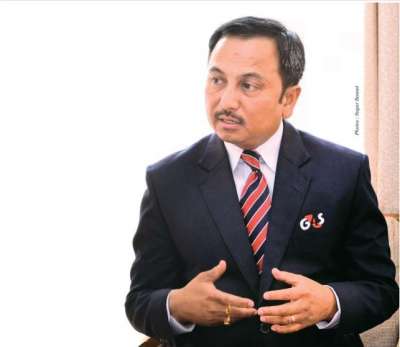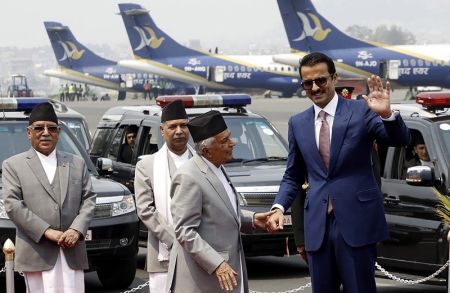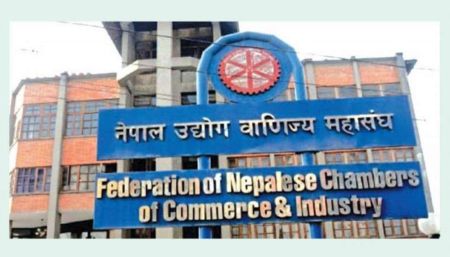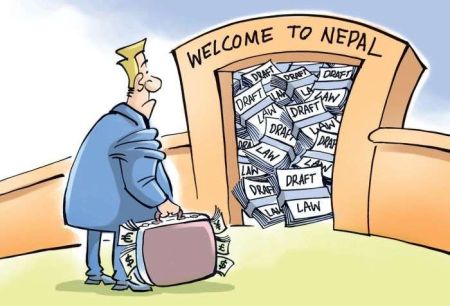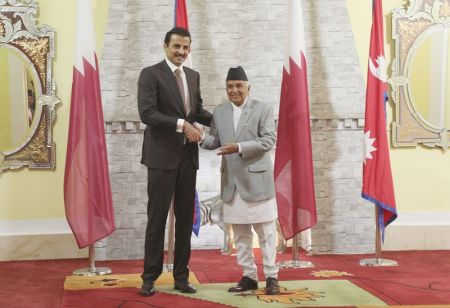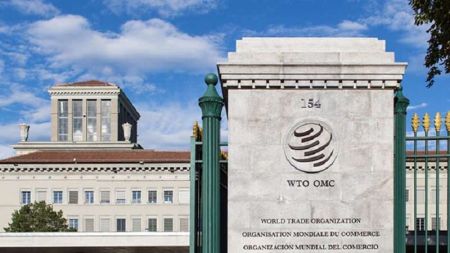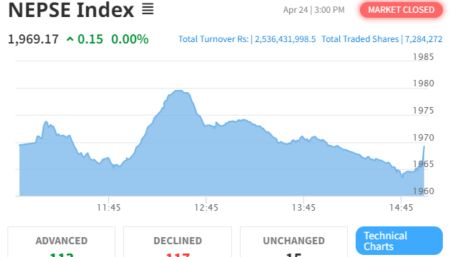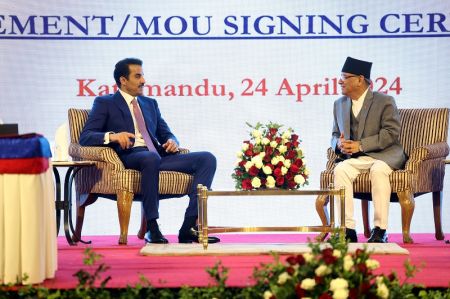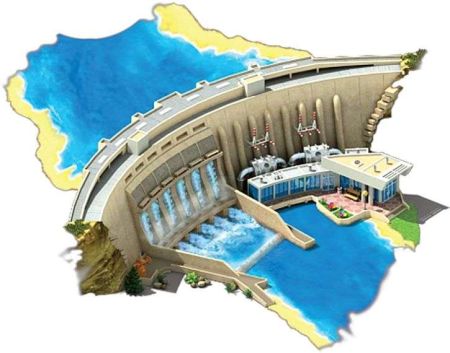We Are Focused On The Basics Of Banking
.jpg)
Sunil Kaushal is the newly appointed Chairman of Standard Chartered Bank Nepal Limited. Kaushal is likely to assume a senior role in the South Asia region, the announcement of which is likely to happen soon. He is currently the President and CEO of Standard Chartered Bank (Taiwan) Limited. He has over 23 years of banking experience and held several senior roles with the bank across different markets including Global Head SME Banking and New Ventures in Singapore. Prior to joining Standard Chartered Bank, he had also worked for Bank of America and HDFC Bank. In an interview with Pinaki Roy of New Business Age, Kaushal shared his views on the global banking scenario and Standard Chartered Bank's presence in the key world markets. Excerpts:
You have been appointed the new Chairman of Standard Chartered Bank in Nepal. What kind of vision do you have in mind for Standard Chartered Bank's operations here in Nepal?
First of all, I think you would appreciate that we have created a very solid platform in the last 25 years in Nepal. At our AGM held recently, we declared a solid set of results given the tough market environment that prevails. The vision is to build on a strong platform that we have got here. We are very well positioned for a balance across wholesale as well as consumer banking, in the years to come.
You have been at the helm of affairs in Taiwan for quite some time now. Could you highlight some interesting events during your tenure while heading Taiwan operations?
I have been fortunate enough to have worked at many locations outside my home country and Taiwan has been one of the overseas postings for me. Taiwan was particularly interesting for the bank because we had three acquisitions there. What was also quite interesting was the acquisition of a bank Hsinchu International Bank that was much larger than ours. The other two were Asia Trust Bank (for licensing) and American Express Bank (global acquisition). It was about assimilating the culture putting the three acquisitions together, integrating them and then building on the platform. The results of Taiwan have been pretty strong.
How has Standard Chartered differentiated itself as a bank when compared to some other global banking giants in terms of performance and branding?
In terms of performance, we have delivered time and again as well as enjoyed great ratings upgrade for as long as one can remember. If you look at our share prices, we are one of the few banks which trade at premium to book value. We are present in the right markets Africa,
Asia and the Middle East which stayed relatively better even during the financial crisis. And when the recovery happened on an absolute basis, these markets did fantastically well. We have a long history in these markets around 150 years presence in most of them so we have the depth and breadth of relationships in these markets.
Our strategy has been very clear in terms of focusing on these markets and relying on the basics of banking to deliver our performance. We have been there for our customers by being open for business and that is a very big thing. It is as big today at a time when big institutions globally are undergoing stress, talking about cutting headcount and reducing presence. On the contrary, we are still very much in a growth mode so we stand in a unique and differentiated position. We were the only international bank which consistently delivered record profits even during the financial crisis whereas most banks were struggling to break even.
Standard Chartered brand has been created over a period of time and we owe it to the management teams in different markets for taking the right decisions with the depth of the local knowledge that they have. The trust that the bank has created over time is especially evident during financial crises when we always see a flight to quality in terms of the customer deposits coming to us. We have proven that people feel secure while trusting their money with us. The best part is that we don't rest on our laurels and continuously try to keep ahead of the market. These are challenging times globally but we are very well positioned and quite differentiated from the competition.
Despite the global economic crisis, Standard Chartered Bank figures among the largest profit earning international banks. How do you view this success?
It is about being distinctive in our strategy which has resulted in our differentiated financial performance. In fact, we have delivered eight straight years of record profits, and are the only international bank to have received a ratings upgrade by all the three global rating agencies since the start of the financial crisis. Our performance, as you mentioned, has been very strong in the closing statement that we came out with recently which reiterates our differentiated position further.
Among the reasons for this is that we are focused on the basics of banking having a strong capital base, focusing on our clients and customers, having a strong balance sheet in terms of liquidity and being open for business. Besides, we are present in the right markets Asia, Africa and Middle East which are actually experiencing good growth as compared to the west which is facing challenges that all of us are aware of.
Of late, the financial world is again embroiled in a crisis of sorts, like the Eurozone debt crisis. How do you analyse this situation and what kind of impact will this have on the banking scenario across different markets?
In terms of global impact, we have all been hearing about banks wanting to require potential recapitalisation. The impact is applicable across all markets as some of the European banks pulled back because they had to reduce their risk related assets. These banks had to reduce their exposure so that the capital comes up to the level of 9 per cent that EU has mandated by the middle of next year. It's very difficult for them to go out and raise capital at this price when they are not into utilizing their earnings.
There is clearly a stress on liquidity for certain banks because of the fear of the exposure that they have to the European markets. Fortunately, for a bank such as ours which has no exposure to the distressed markets in Europe, it creates opportunities for us given the funding, strong balance sheets and capital position that we have. We are looking at these opportunities in different markets and monitoring them quite closely.
Standard Chartered, as I understand, has always propagated organic growth. Do you think there will ever be a shift in this line of thought and probably the bank could look at the issue of mergers and acquisitions more favourably in the foreseeable future?
If you look at the last decade or so, our focus is absolutely on organic growth but we have local opportunities which are inorganic as they presented themselves. Therefore, more than being a matter of choice, it is about having the right blend. Though we are focused on organic growth as a bank, we will surely consider if a right opportunity comes up.
Tell us about Standard Chartered Bank's India and South Asia operations which you are tipped to take over in due course?
India is huge for us and South Asia is big for us as a region and I am excited about the opportunity.
In terms of market situation, it will be obviously different from my posting at Taiwan which was already a developed market. But I also have been through different roles globally which provided me with an opportunity to look at diverse markets from Korea in the east to Nigeria in the west. Therefore, I do have the understanding of managing different markets and challenges are something that I always look forward to.
You have also been the Global Head for SMEs and New Ventures in Singapore. What are your plans to this effect for your operations in the South Asia region?
The SME sector is already quite large for us in the markets in South Asia. It's about building on the strong track record that we have in the sector. SMEs are the core to any economy typically when they constitute 90-95 per cent of the enterprises and contribute 65-70 per cent of the employment. Even during the financial crisis, we have been out there supporting the SMEs and again that is something which differentiates us. SMEs augur well for South Asia as there is potential growth in the economies because of the sheer confidence of SMEs to the economies in the region.
Talking about India, there are recent reports that suggest the Indian economy may not be growing at the same breakneck speed that it so promised until about a couple of years ago, for a variety of reasons. How big an impact will it have on the fortunes of the banking conglomerates in the country?
One has to look at the situation in terms of the overall context. India has had very strong growth in the past many years.There are some signs of moderation but I think it is only a short term phenomenon there is no denying the fundamental strength of the economy and we as an organisation are very bullish about the long term potential of the market. The big story about India remains unchanged in terms of its medium and long term prospects; we should not read too much into a slowdown in the last few quarters.
Standard Chartered Bank's profits in India have come under pressure after five years of accelerated growth. How, do you think, a difference can be made in this context?
Standard Chartered in India has had a fantastic growth over the last decade or so and the team there has done an incredible job, with profits growing fivefold in the last five years. As I said, it's a short term blip and clearly, there are immense opportunities in the Indian market. We are well positioned as an institution having been in that market for 150 years, to really capitalise on the growth opportunities the economy presents.
China is the fastest growing economy in the world. How well placed is Standard Chartered Bank in the country given its immense potential?
We do have a sizeable presence in China with a fully-owned banking subsidiary which operates over 70 outlets. We will very soon be looking at crossing the 90 mark in terms of the outlets that we have in the country. We have been present in China for around 150 years and it's one of the fastest growing markets for our bank in terms of revenue momentum and growth.
So, the Chinese market has immense opportunities for us and a bank such as ourselves, is very well positioned given our long history in that particular market. We can certainly be more aggressive in China but we also have to balance the opportunity with the investment. And I don't think we have held back on any investment in China as it's a market where we see great potential and growth.


